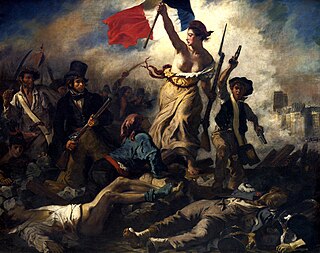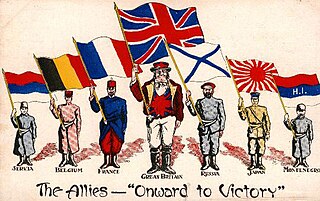
Irredentism is one state's desire to annex the territory of another state. This desire can be motivated by ethnic reasons because the population of the territory is ethnically similar to the population of the parent state. Historical reasons may also be responsible, i.e., that the territory previously formed part of the parent state. However, difficulties in applying the concept to concrete cases have given rise to academic debates about its precise definition. Disagreements concern whether either or both ethnic and historical reasons have to be present and whether non-state actors can also engage in irredentism. A further dispute is whether attempts to absorb a full neighboring state are also included. There are various types of irredentism. For typical forms of irredentism, the parent state already exists before the territorial conflict with a neighboring state arises. However, there are also forms of irredentism in which the parent state is newly created by uniting an ethnic group spread across several countries. Another distinction concerns whether the country to which the disputed territory currently belongs is a regular state, a former colony, or a collapsed state.

A nation-state is a political unit where the state, a centralized political organization ruling over a population within a territory, and the nation, a community based on a common identity, are congruent. It is a more precise concept than "country", since a country does not need to have a predominant national or ethnic group.
Nationalism is an idea and movement that holds that the Nation should be congruent with the state. As a movement, it presupposes the existence and tends to promote the interests of a particular nation, especially with the aim of gaining and maintaining its sovereignty (self-governance) over its perceived homeland to create a nation-state. It holds that each nation should govern itself, free from outside interference (self-determination), that a nation is a natural and ideal basis for a polity, and that the nation is the only rightful source of political power. It further aims to build and maintain a single national identity, based on a combination of shared social characteristics such as culture, ethnicity, geographic location, language, politics, religion, traditions and belief in a shared singular history, and to promote national unity or solidarity. Nationalism, therefore, seeks to preserve and foster a nation's traditional culture. There are various definitions of a "nation", which leads to different types of nationalism. The two main divergent forms identified by scholars are ethnic nationalism and civic nationalism.

Romantic nationalism is the form of nationalism in which the state claims its political legitimacy as an organic consequence of the unity of those it governs. This includes such factors as language, race, ethnicity, culture, religion, and customs of the nation in its primal sense of those who were born within its culture. It can be applied to ethnic nationalism as well as civic nationalism. Romantic nationalism arose in reaction to dynastic or imperial hegemony, which assessed the legitimacy of the state from the top down, emanating from a monarch or other authority, which justified its existence. Such downward-radiating power might ultimately derive from a god or gods (see the divine right of kings and the Mandate of Heaven).

Self-determination refers to a people's right to form its own political entity, and internal self-determination is the right to representative government with full suffrage.
An ethnicity or ethnic group is a group of people who identify with each other on the basis of perceived shared attributes that distinguish them from other groups. Those attributes can include a common nation of origin, or common sets of ancestry, traditions, language, history, society, religion, or social treatment. The term ethnicity is often used interchangeably with the term nation, particularly in cases of ethnic nationalism.
Secession is the formal withdrawal of a group from a political entity. The process begins once a group proclaims an act of secession. A secession attempt might be violent or peaceful, but the goal is the creation of a new state or entity independent of the group or territory from which it seceded. Threats of secession can be a strategy for achieving more limited goals.
Separatism is the advocacy of cultural, ethnic, tribal, religious, racial, governmental, or gender separation from the larger group. As with secession, separatism conventionally refers to full political separation. Groups simply seeking greater autonomy are usually not considered separatists. Some discourse settings equate separatism with religious segregation, racial segregation, or sex segregation, while other discourse settings take the broader view that separation by choice may serve useful purposes and is not the same as government-enforced segregation. There is some academic debate about this definition, and in particular how it relates to secessionism, as has been discussed online.
Presented below is a list of the lists of active separatist movements by continent:
The term "minority group" has different usages, depending on the context. According to its common usage, the term minority group can simply be understood in terms of demographic sizes within a population: i.e. a group in society with the least number of individuals, or less than half, is a "minority". Usually a minority group is disempowered relative to the majority, and that characteristic lends itself to different applications of the term minority.
Regionalism is a political ideology that seeks to increase the political power, influence and self-determination of the people of one or more subnational regions. It focuses on the "development of a political or social system based on one or more" regions, and/or the national, normative, or economic interests of a specific region, group of regions or another subnational entity, gaining strength from or aiming to strengthen the "consciousness of and loyalty to a distinct region with a homogeneous population", similarly to nationalism. More specifically, "regionalism refers to three distinct elements: movements demanding territorial autonomy within unitary states; the organization of the central state on a regional basis for the delivery of its policies including regional development policies; political decentralization and regional autonomy".
A multinational state or a multinational union is a sovereign entity that comprises two or more nations or states. This contrasts with a nation state, where a single nation accounts for the bulk of the population. Depending on the definition of "nation", a multinational state is usually multicultural or multilingual, and is geographically composed of more than one country, such as the countries of the United Kingdom.
Internal colonialism is the uneven effects of economic development on a regional basis, otherwise known as "uneven development" as a result of the exploitation of minority groups within a wider society which leads to political and economic inequalities between regions within a state. This is held to be similar to the relationship between a metropole and a colony, in colonialism proper. The phenomenon leads to the distinct separation of the dominant core from the periphery in an empire.

National identity is a person's identity or sense of belonging to one or more states or one or more nations. It is the sense of "a nation as a cohesive whole, as represented by distinctive traditions, culture, and language". National identity may refer to the subjective feeling one shares with a group of people about a nation, regardless of one's legal citizenship status. National identity is viewed in psychological terms as "an awareness of difference", a "feeling and recognition of 'we' and 'they'". National identity also includes the general population and diaspora of multi-ethnic states and societies that have a shared sense of common identity identical to that of a nation while being made up of several component ethnic groups. Hyphenated ethnicities are examples of the confluence of multiple ethnic and national identities within a single person or entity.
Civic nationalism, otherwise known as democratic nationalism, is a form of nationalism that adheres to traditional liberal values of freedom, tolerance, equality, and individual rights, and is not based on ethnocentrism. Civic nationalists often defend the value of national identity by saying that individuals need it as a partial shared aspect of their identity in order to lead meaningful, autonomous lives and that democratic polities need a national identity to function properly. Liberal nationalism is used in the same sense as 'civic nationalism', but liberal ethnic nationalism also exists, and "state nationalism" is a branch of civic nationalism, but it can also be illiberal.

The rise of nationalism in Europe was stimulated by the French Revolution and the Napoleonic Wars. American political science professor Leon Baradat has argued that “nationalism calls on people to identify with the interests of their national group and to support the creation of a state – a nation-state – to support those interests.” Nationalism was the ideological impetus that, in a few decades, transformed Europe. Rule by monarchies and foreign control of territory was replaced by self-determination and newly formed national governments. Some countries, such as Germany and Italy were formed by uniting various regional states with a common "national identity". Others, such as Greece, Serbia, Bulgaria, and Poland were formed by uprisings against the Ottoman or Russian Empires. Romania is a special case, formed by the unification of the principalities of Moldavia and Wallachia in 1859 and later gaining independence from the Ottoman Empire in 1878.
Post-colonial anarchism is a term used to describe anarchism in an anti-imperialist framework. Whereas traditional anarchism arose from industrialized Western nations—and thus sees history from their perspective—post-colonial anarchism approaches the same principles of anarchism from the perspective of colonized peoples. It is highly critical of the contributions of the established anarchist movement, and seeks to add what it sees as a unique and important perspective. The tendency is strongly influenced by indigenism, anti-state forms of nationalism, and anarchism among ethnic minorities, among other sources.

Kurdish nationalism is a nationalist political movement which asserts that Kurds are a nation and espouses the creation of an independent Kurdistan from Iran, Iraq, Syria, and Turkey.
Among scholars of nationalism, a number of types of nationalism have been presented. Nationalism may manifest itself as part of official state ideology or as a popular non-state movement and may be expressed along civic, ethnic, language, religious or ideological lines. These self-definitions of the nation are used to classify types of nationalism, but such categories are not mutually exclusive and many nationalist movements combine some or all of these elements to varying degrees. Nationalist movements can also be classified by other criteria, such as scale and location.
Ethnic nationalism, also known as ethnonationalism, is a form of nationalism wherein the nation and nationality are defined in terms of ethnicity, with emphasis on an ethnocentric approach to various political issues related to national affirmation of a particular ethnic group.






